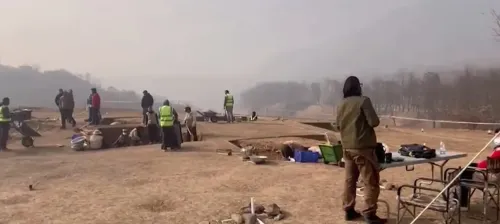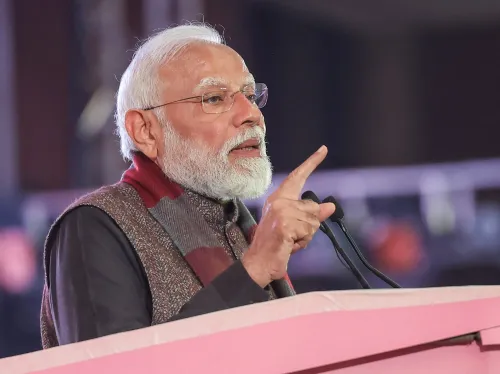How is the Delhi government tackling winter air pollution?

Synopsis
Key Takeaways
- Delhi government to distribute 3,000 electric heaters.
- Focus on reducing winter air pollution.
- Targeting Resident Welfare Associations, forest guards, and workers.
- Investment of Rs 4.2 crore from CSR funds.
- Part of a year-round anti-pollution strategy.
New Delhi, Sep 12 (NationPress) In an effort to combat winter air pollution, the Delhi government has announced plans to distribute electric heaters to more than 3,000 Resident Welfare Associations, forest guards, and unorganised industrial workers who depend on the open burning of biomass. Environment Minister Manjinder Singh Sirsa stated: “This marks a pivotal change for Delhi. Rather than merely issuing advisories and bans, our government is taking decisive action with genuine solutions that impact the lives of thousands.”
He emphasized: “By providing heaters, we aim to eliminate the need for burning biomass or waste, thereby benefiting both the environment and public health. This initiative is not just about ending open fires, but also about supporting every resident in Delhi through effective leadership and compassion.”
Sirsa further remarked: “The Delhi government is committed to safeguarding lives while enhancing air quality. We are not only monitoring and enforcing regulations but also empowering our citizens — from supplying heaters to workers to modernizing waste management practices. Our aim is to achieve clean air, safety, and dignity for everyone.”
During a high-level virtual meeting on Friday, the Divisional Commissioner, along with senior officials from DSIIDC, the Environment Department, and DPCC, collaborated to establish a strong and transparent system for evaluating the needs of RWAs throughout Delhi, as per an official statement.
The Minister instructed the Divisional Commissioner to conduct a fresh assessment of all RWAs to ensure fair and extensive distribution of electric heaters to their night watchmen before the winter months.
DSIIDC is set to allocate approximately Rs 4.2 crore from its Corporate Social Responsibility (CSR) budget to procure the heaters, with direct oversight from the Divisional Commissioner’s office.
The Environment Department will continuously monitor this initiative as part of its mission. Priority will be given to RWAs, forest guards, and workers in unorganised sectors, implementing proactive measures to ensure no one resort to polluting practices for warmth during winter, according to the statement.
Sirsa indicated that this initiative is part of Delhi’s comprehensive, year-round anti-pollution strategy — a multi-faceted approach that encompasses strict surveillance of open burning, daily inspection teams, effective reporting systems, and awareness campaigns.
In addition to distributing heaters, the Delhi government is also advancing its extensive waste management agenda, which includes biomining at landfills and expanding waste-to-energy facilities, with a goal of achieving 100% waste processing and preventing fires at dumping sites — all contributing to cleaner air and a safer environment for millions.
By mid-2025, agencies have ramped up biomining efforts at Ghazipur, Bhalswa, and Okhla, processing over 10,000 tonnes of waste daily and reducing methane emissions through scientific excavation and segregation. New guidelines require quarterly fire drills, CCTV installations, and gas detectors to prevent incidents, as noted in the statement.
This year alone, these efforts have successfully thwarted any significant fire outbreaks, reinforcing the city’s objective of achieving 100% waste processing and minimizing environmental risks, stated the report.










